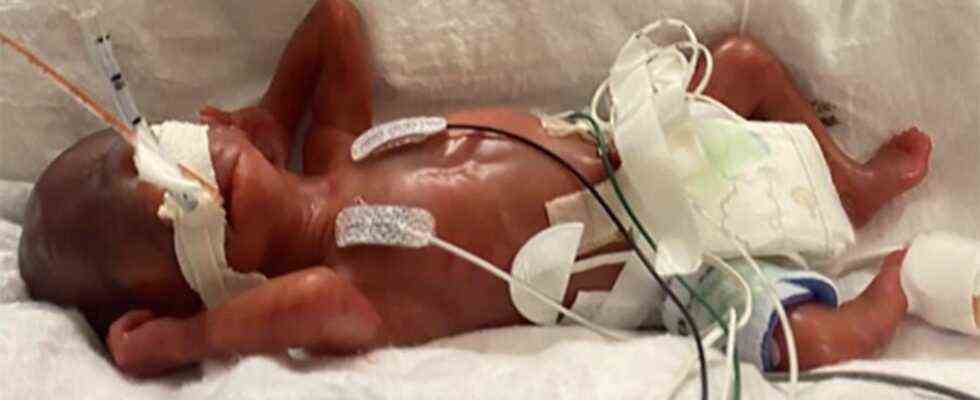Guiness Book of Records
New record: premature baby is born 132 days early – and, against all odds, survives
Premature baby Curtis Means after he was born in the 21st week of pregnancy
© University of Alabama at Birmingham
An Alabama baby is the earliest premature baby in the world – it was born in the 21st week of pregnancy. The doctors only gave the boy a one percent chance of survival. Nevertheless, he is now healthy.
Actually, little Curtis Means should have taken his time. But the boy from the US state of Alabama was born together with his twin sister on July 5, 2020 – in the 21st week of pregnancy, a whole 132 days early. A shock for the parents and the doctors: the baby was given little chance of survival. In numbers that meant: less than one percent.
His twin sister died shortly after birth. With Curtis, too, the end seemed only a matter of time. “As a rule, we advise compassionate care for such extremely premature births. This way, the parents can hold their baby in their arms and enjoy the little time they have,” says Brian Sims, attending physician at the University of Alabama. But Curtis turned out to be a fighter by nature – and even set a world record: As the premature surviving child, he now has his own entry in the Guinness Book of Records.

Premature baby weighed only 420 grams at birth
Curtis is now 16 months old and, contrary to all initial predictions, is in good health, announced the university clinic. In April, 275 days after birth, the baby was discharged from the hospital for the first time. “There were days when we weren’t sure he’d survive,” says a nurse who looked after Curtis. “He was the youngest baby any of us had ever worked with. But we did everything we could to make sure he could go home.” Given the circumstances, it was almost a miracle: Curtis had only weighed 420 grams at birth. With the support of the therapist, he learned to eat and breathe independently.
“We don’t know what the future will bring for Curtis because there is no one like him,” said Doctor Brian Sims. “He started writing his own story on the day he was born. This story will be read and studied by many and will hopefully help improve care for premature babies around the world.”
Source: University of Alabama of Birmingham

